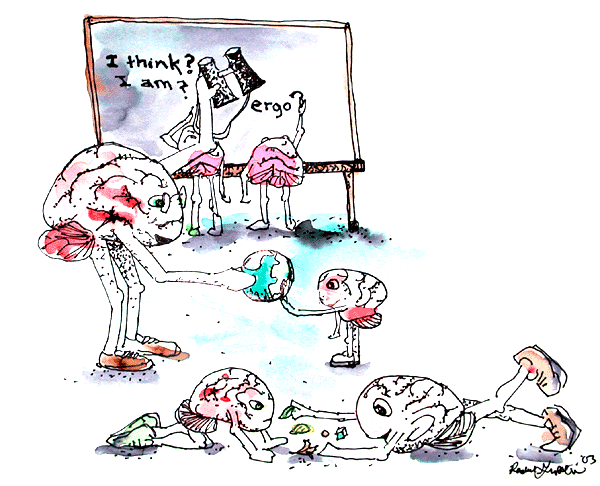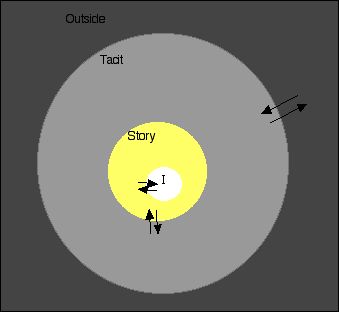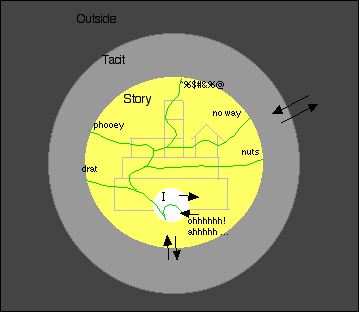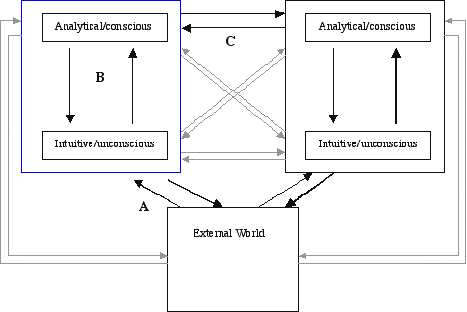Education and the Brain: New Challenges and New Directions
| overview| no unwobbling pivots | story | intersubjectivity | inquiry and education |
New Directions for Inquiry and Education: Empirical Non-Foundationalism |
 |
Stop trying to get it right, enjoy instead the creative freedom of aspiring instead to get it less wrong, of continually creating new generative stories using all three loops
Empirical non-foundationalism:
- Recognize the inadequacy of purely empirical approaches, embrace the additional two productive loops ... the unconscious/story teller and the interpersonal
- seeking objectivity is just a matter of getting as much intersubjective agreement as you can manage
- Accept/value the role of stories in inquiry, and of diversity of stories
- If we change the stories we live by, quite possibly we change our lives.
- Commit to helping students acquire not only critical but creative skills, using all three loops
- The logic of aspiring to, and teaching, "objectivity" thus derives not only from our individual needs to make our individual ways in a mysterious world but equally from a recognition that we can better do so in state of the most effective exchange with people whose experiences/understandings are different from our own.
- Stop worrying about the uncertainty of the known. Enjoy/share enjoyment of the certainty of the unknown and our collective participation in creating what might yet be
- Commit to sharing that understanding/enjoyment with students ... and with the world at large
Open-ended transactional inquiry
- All students are different, are supposed to be, and should be encouraged to be
- All students are capable of learning from their experiences, and should be encouraged to make that a continuing part of their lives.
- Learning is, and should be encouraged to be, both unconscious and conscious/reflective and involves not getting it right but getting it less wrong, in qny of an infinite number of ways.
- Students need to be encouraged to develop their story telling skills and to appreciate the bidirectional relation between observations and stories. Developing an ability to distinguish between observations and interpretations/stories is an essential element of this.
- The overriding objective is increased inquiry skill and sophistication, not achievement of a particular understanding or perspective
- Students should be encouraged to play an active role in their own education and that of others
- Teachers should model for students the dynamic process of inquiry by themselves adopting a non-authoritative and interactive posture, by providing a generative environment, and by helping students develop the skill of distinguishing between more and less generative directions for further exploration.
Thanks for listening to my story. Your thoughts about how it relates to/influences your own and how it might in turn influence mine are welcome.




